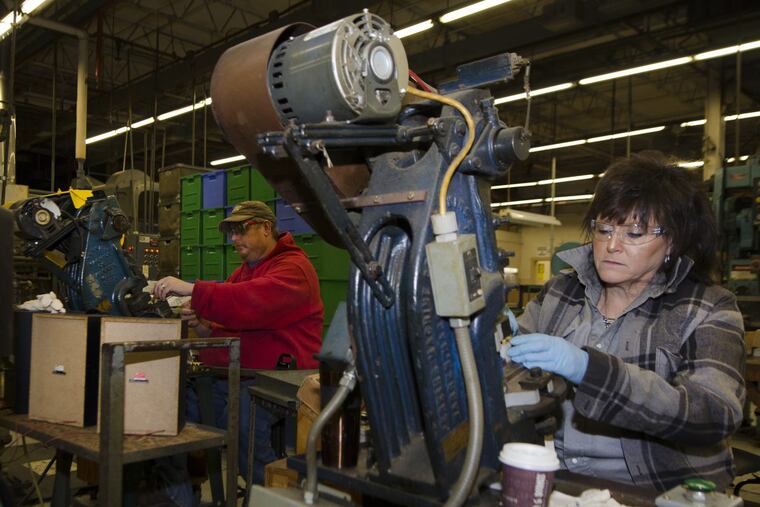Ending chain migration is good for Pa. workers | Opinion
Pennsylvania Senator Bob Casey has historically opposed such immigration reductions - but that would be a mistake.

Two in three Pennsylvania voters want to reduce legal immigration levels from one million people a year to 500,000. Those numbers should cause some concern for Sen. Bob Casey and his 2018 reelection prospects.
The constituencies that have traditionally backed Casey strongly support such reductions. Union households favor the lower limits by a 2-1 ratio. Catholic voters, who have traditionally praised the Democrat for his pro-life stances, support the cuts by a 3-1 ratio. Casey has historically opposed such immigration reductions. If Casey opposes a popular new bill in Congress, the Securing America's Future Act, which would implement these cuts, it could cost him his seat this fall.
Strong majorities of Pennsylvanians support the reductions for a simple reason: High levels of immigration have increased competition for jobs, thereby depressing wages and forcing many blue-collar Pennsylvanians out of the labor force.
Right now, less than 7 percent of green cards, which grant permanent residency and lifetime work privileges, are given to immigrants with special job skills. Instead, most are given to previous immigrants' siblings, parents, and adult children. Those family members can eventually bring over additional relatives. This "chain" of immigration does not depend on the skills these newcomers bring to the American economy.
The "diversity visa lottery" also ignores immigrants' skill sets. The program selects more than 50,000 people at random from countries with low immigration rates to the United States and awards them green cards.
These policies severely harm Pennsylvania's blue-collar workers. In 1990, only 3 percent of Pennsylvania residents were foreign-born. Today, that share has more than doubled.
Many of these immigrants are low-skilled. In fact, 23 percent of foreign-born Pennsylvanians ages 25 and up lack a high-school degree. Just 10 percent of native-born Pennsylvanians lack a diploma. Competition from immigrants drives down wages for hard-working Pennsylvanians. Harvard University economist George J. Borjas found that increasing the number of workers with a given skill set by 10 percent decreases wages of that group by about 3 percent.
Pennsylvanians can't afford such pay cuts. Our state ranks 46th for wage growth. Between July 2016 and July 2017, average hourly earnings grew a measly 1.5 percent. In Delaware, they grew 11.7 percent.
Many Pennsylvanians are struggling to find any work at all. Conditions have improved since the Great Recession, with the unemployment rate dipping below 5 percent in 2017. But that rate doesn't include those who have given up looking for work. Barely half of Pennsylvanians without high-school degrees participate in the labor force. It also doesn't include those who can only find part-time jobs.
Pennsylvania doesn't have enough jobs for all the less-skilled workers who already live here. Importing more low-skilled workers would only drive struggling American laborers deeper into poverty.
The Securing America's Future Act would put a stop to these counterproductive practices. By ending chain migration, which accounts for roughly 70 percent of all new immigrants, the bill would drastically reduce the endless supply of unskilled labor that is currently harming Pennsylvania laborers. And to curb illegal immigration, the bill would make worker verification mandatory for all employers. Mandatory worker verification would prevent employers from bolstering their bottom lines by hiring illegal immigrants over hard-working Americans.
These policy changes would reduce low-skilled immigration and open up more jobs for blue-collar Pennsylvanians. Sen. Casey would be wise to support this bill. It's good politics — and more important, good policy.
Frank J. Connor is chair of the Villanova University College Republicans and a staff writer for Western Free Press.